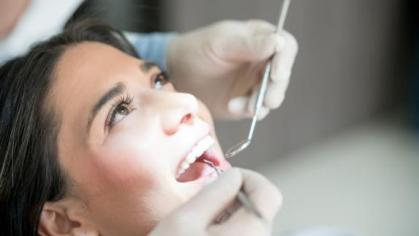The Consequences of Leaving Your Wisdom Teeth In
Your third molars, also called your wisdom teeth, are infamous for causing a variety of problems. Unfortunately, most wisdom tooth complications aren’t obvious until the damage is too serious to reverse. While leaving wisdom teeth in might seem safe, you could already have an invisible issue which will cause more problems later on. Normally, your general dentist will refer you to an oral surgeon when recommending the extraction of wisdom teeth. Here, Rutgers Health University Dental Associates describes a few common complications you can avoid by having your wisdom teeth removed sooner.
Tooth and Gum Decay
One significant reason to remove your wisdom teeth is to prevent tooth decay. Your wisdom teeth are located far in the back of your mouth, making them difficult to reach with a toothbrush or floss. As a result, plaque and food particles easily accumulate, making wisdom teeth very prone to cavities and decay.
The leading cause of third molar removal are periodontal conditions called pericoronitis, in which food and debris get trapped under soft tissue flaps, causing inflammation and pain. This may also lead to bone loss on the distal of the second molar, causing compromise of that tooth, as well as making it more susceptible to caries and periodontal disease.
Tooth infections can easily spread to surrounding teeth, causing even more cavities. It can also spread into the gums. If left untreated, gum disease leads to deterioration of the jaw bone itself.
Overcrowding Your Mouth
Another big reason dentists recommend wisdom tooth removal is to prevent damage to your jaw and teeth. Wisdom teeth are the largest teeth in the set and the last to grow in. By the time they start emerging, there’s not always enough room for them. The result is that wisdom teeth often push other teeth aside, and beyond causing pain, overcrowded mouths are more difficult to clean and prone to cavities.
If the mouth is seriously overcrowded, however, the wisdom teeth might even grow incorrectly, most often on an angle. When they do, they crash through the roots of other teeth, damaging or in some cases destroying them. They might also appear in the wrong place, causing discomfort and making normal jaw function difficult.
Impaction, Sinus Pressure, and Cysts
While it’s very common for wisdom teeth to grow incorrectly, what happens when they don’t grow at all? Sometimes, wisdom teeth become impacted. That is, they become trapped in the jaw and unable to grow in any direction. Impaction puts pressure on your jaw, other teeth, and even sinuses, causing numbness and pain. It’s also an avenue for infection.
If an impacted tooth is left too long without treatment, the pressure and infection can cause a cyst. This is an abnormal sac of tissue that’s full of fluid. As it grows, the cyst puts even more pressure on the surrounding bone tissue and teeth. If left too long, cysts can even hollow out the jaw bone and destroy tooth roots.
Schedule Wisdom Tooth Removal Today
If you’d like to avoid the common consequences of leaving wisdom teeth in, schedule an appointment to have your third molars removed. Rutgers Health University Dental Associates serves New Jersey with tooth removal, dental surgery, and much more. To learn more, contact us today in Newark or New Brunswick, New Jersey.



